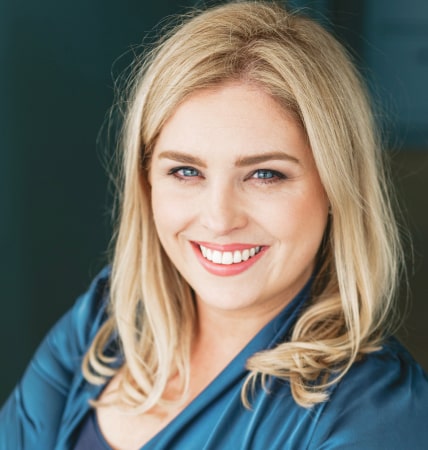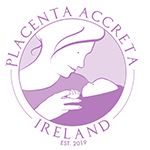Who we are
Placenta Accreta Ireland is Ireland’s only PAS advocacy and support group. Founded in March 2019 our aim is to advocate for those impacted by this high-risk pregnancy complication.
Whilst rare, the incidence of Placenta Accreta Spectrum is rising. That means more and more women, their partners and families are impacted by this life threatening pregnancy condition.
Placenta Accreta Ireland is Ireland’s only PAS advocacy and support group. Founded in March 2019 our aim is to advocate for those impacted by this high-risk pregnancy complication. We wholeheartedly channel our energy, funds and (a lot of!) time into four key areas – advocacy, support, information & education and research.
The group is led by patient advocate Ms Naomi Cooney, Professor Donal Brennan and Dr. Helena Bartels, supported by a group of PAS survivors and advocates. Read more about our members lived experiences in our Patient Stories.

Donal Brennan
Qualification?
Donal Brennan is Professor of Gynaecological Oncology at UCD School of Medicine and academic lead of the UCD Gynaecological Oncology Group which works between the Mater Misericordiae and St Vincent’s University hospital’s. He has multiple research interests in oncology and placenta accreta spectrum. He has helped develop and continues to work with a number of patient advocacy groups, firmly believing that patients should be involved in all stages of research and service development plans. Donal cofounded Placenta Accreta Ireland in 2019. He has chaired the placenta accreta MDT at the National Maternity Hospital, Dublin since its inception in 2017.

Naomi Cooney
Qualification?
Naomi is a co-founder and lead of Placenta Accreta Ireland. Naomi’s sister Ellie died in 2013 due to complications arising from PAS. She is a passionate and tireless advocate who works with medical colleagues and PAS mums with the aim of improving the experience a mum with PAS will have during her pregnancy and beyond. When Naomi and Donal founded Placenta Accreta Ireland they shared a vision that mums diagnosed with this pregnancy complication would feel supported, informed and empowered.

Helena Bartels
Qualification?
Dr Helena Bartels is a specialist registrar in Obstetrics and Gynaecology. Her present role is as the Placenta Accreta Clinical research fellow, working within the PAS specialist service. She is pursuing a PhD qualification through University College Dublin. Her research interests include the pathophysiology of PAS and exploring the lived experience of those impacted by the condition. She is passionate about including the lived experience of PAS mums and families in all aspects of care, research and educational resources.
What we do
“Be an advocate for the people and causes important to you, using the most powerful tool only you have – your personal stories” (John Capecci and Timothy Cage’)
Advocacy
What was once chat amongst a group of advocates and patient survivors during our first meeting has now formed the basis of educational videos, podcast discussions, research, care pathways, decision aids and most importantly understanding. Understanding of what a pregnancy complicated by PAS means and the impact it can have. In all we do, you will hear and read the echoes of many PAS mums voices.
Support
Asking for support isn’t always the easiest thing to do. Each of our members were once where you might find yourself today. If you’re a mum or a loved one of someone who has or has had PAS please consider getting in touch. We are a group of dedicated and committed advocates and patient survivors and are more than happy to talk with you.
“I’ve been diagnosed with PAS but am not feeling up to talking to a PAI ambassador”.
We are well aware that some mums may not want to get in touch but still feel the need for support. We have created a range of supports to help you, provide information, answer your questions and learn more about what you can expect during your pregnancy and beyond. For more information check out our ‘Resources’ section.
“I’ve been diagnosed and would like to get in touch, what support do you offer?”
You’re very welcome to Placenta Accreta Ireland. We offer 1:1, peer and group support. We meet regularly in person and virtually. Mums and their loved ones from all over the country are welcome to join, regardless of where they received their maternity care or where they are in their journey. Some mums prefer 1:1 support initially and that can be by phone, text, email or in person. We recommend getting in touch and we can go from there. You will find our contact details in the contact us section.
“I had PAS some time ago but still feel I could do with support, I feel most don’t understand what I went through, and continue to go through”
Don’t let time be a factor. We are often contacted by mums long after they had a pregnancy complicated by PAS. If you would benefit from getting further information, talking to someone about your experience or would like to hear about our group and what we achieve get in touch.
“I’m a partner/loved one/sister/friend of someone who has or has had PAS and would like to get in touch”.
We are often contacted by loved ones of those with PAS and are more than happy to provide support to you also.
Information & Education
When Placenta Accreta Ireland was formed in 2019 our first goal was to create patient centric accurate resources and this remains a continuous focus of ours today. Our aim was to replace much of the outdated and inaccurate information many mums and families were finding online with a suite of accurate and comprehensive resources. We want mums to be well informed about what PAS is, what they can expect during their pregnancy and afterwards. Our educational materials are updated regularly and we add to our repertoire regularly. We work with our medical colleagues to ensure our understanding is up to date and that we are well informed of developments regarding PAS.
Research
We have been involved in exciting and novel research studies both nationally and internationally. Research opportunities are open to members and non-members of our group. If you would like have your say register your interest today and we will contact you as research studies are recruiting participants. To read more about research we have been involved in and other studies of interest, check out our Research section.

